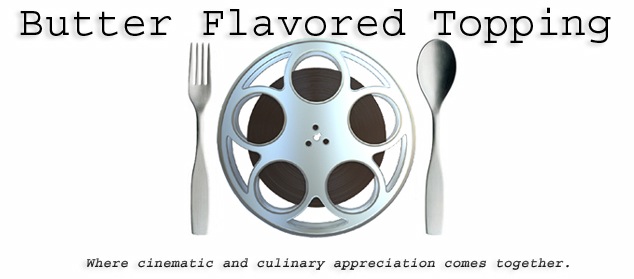 possible spoilers below
possible spoilers below
First of all, to the marketing genius who decided to score the Atonement DVD commercials with Timbaland's "Apologize" -- stop taking your teenaged daughter's advice on ad campaigns. And stop going through her cabinets and smoking whatever drugs you find. They're hers.
Speaking of marketing, Atonement reminded me why it's good to never see a trailer, read a review, or otherwise know anything about a film before seeing it. I thought it was going to be a schmaltzy romantic throwback involving separated lovers, old English class conflicts, glorious depictions of the French losing World War II, period costumes galore, and misty-eyed love letter voice overs. And it has all that. But the story of Atonement's tragically separated lovers is anything but old school by virtue of its structure. The film begins with the eyes of young Briony, a precocious young teen with a fertile imagination and a penchant for writing. An early sequence cleverly indoctrinates the audience to how this story will unfold. There is an encounter between Briony's prickly older sister Cecilia and Robbie, the son of the estate's housekeeper, that Briony thinks is menacing, but the film replays the events for what they are: the contentious spark that reveals a friendship to be romance. A number of events in the film's first act play out in this fashion, and it feels like a clunky device until Briony witnesses an ugly crime. The only way her young mind can make sense of it is to pin it on the seemingly lewd and uncouth help, thus condemning Robbie to prison and, later, the army.
The ensuing scenes of heartbreak and emotional devastation against the backdrop of a generation-altering war are beautiful in their sweep. The single-take sequence of harried British troops on the beaches of Dunkirk is grand cinema. However, it's the film's ending that pulls everything together. Twists that change the context of every scene that preceded it tend to fall flat on their faces. More often than not, they're cheap gimmicks that essentially boil down to the filmmaker's saying, "Hey, those last two hours you just watched? I was kidding -- this is what really happened." For examples of how a twist like this can go horribly awry, see Abandon and Lucky Number Slevin. Or take my word for it and don't see them because they suck.
Atonement's twist (for lack of a better word) is rooted in the character work, in the foundation laid in the opening scenes, in the thematics, and even the title. It's an affecting piece that had me thinking about it long after the credits rolled, about Robbie's simple mistake of honesty that brought two people together, and how the confused imagination of a young girl destroyed two other lives. I especially appreciated how the story doesn't try to explain Briony's motivations. Her convoluted version of the truth is equal parts jealousy, fear, and immaturity. The notion that she can only amend her lie by devoting her life to writing fiction is what pushes Atonement beyond a simple love story. The film starts as an engrossing romantic tragedy and ends as a provocative view on the sticky relationship between truth and fiction, and the muddy distinction between fiction and lies.
On another note, please give the Amazon.com mp3 store a look. I downloaded the lovely Atonement soundtrack from there (which uses the pounding sound of a typewriter to good effect) and now listen to it in it's DRM-free, 256 kbps glory. They don't yet have the selection of iTunes and the interface isn't as slick for browsing, but they deserve props for forcing the record companies' hand and dropping the handcuffs of DRM. Of course, iTunes is still tops for organizing music, especially if you're not one of the two people who own Zunes, but competition is always fun, so keep it up, Amazon.
06 March 2008
Atonement
Labels: British, drama, film, film/TV review, romance, soundtracks, war
Subscribe to:
Post Comments (Atom)







No comments:
Post a Comment